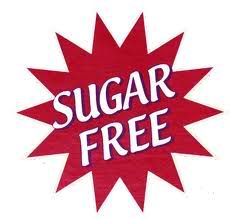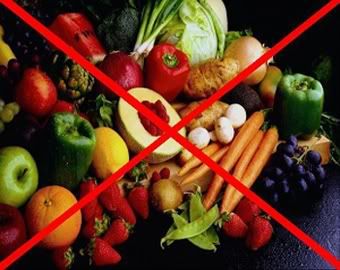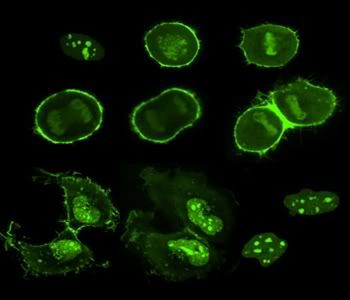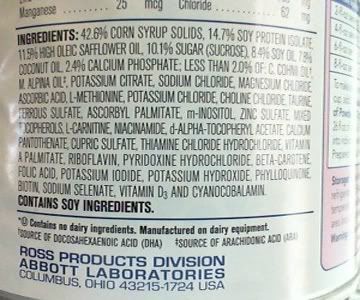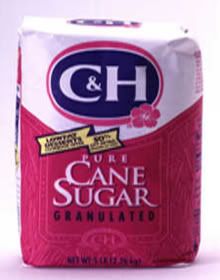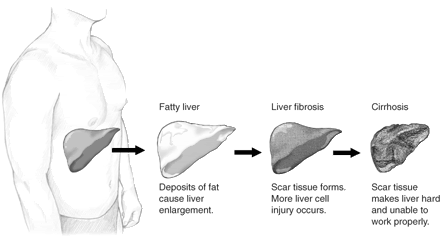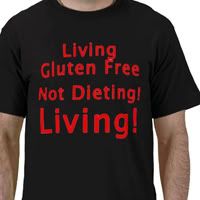First I would like to point out the misleading marketing regarding different forms of sugar. For example, sugar, brown sugar, turbinado sugar, “organic” evaporated cane juice, etc. Other than some trace amounts of random minerals, they are all molecularly identical, just different names for the same thing. Don't be fooled by marketers. They want you to think that “organic sugar” is somehow magically free from the health problems that are associated with sugar, so that you will feel free to enjoy their products guilt-free; however, it makes no difference in the slightest.
There are a lot of new sugar alternatives out there and new ones coming out all the time. Some of them are possibly harmless, and some of them are utterly terrible. Here are the ones I would recommend, and which ones to avoid completely and why.
Avoid
Aspartame: Aspartame arguably should never have been approved by the FDA. It has had its doubters since the beginning and continues to draw criticism. Some of the effects of aspartame poisoning according to the FDA, are head aches, vision loss, including blindness, seizures and neurological problems. It is said that 80% of complaints to the FDA are aspartame related. Also, studies have found that aspartame caused brain tumors in rats, and these studies were conducted prior to FDA approval; the FDA resisted approving it for years because of these studies and concerns about aspartame's effects, but unfortunately they gave into the political pressure and ended up approving it.
If that isn't enough to make you steer clear of this sweetener, lets ask ourselves “What is aspartame?” Aspartame is not a natural sweetener; It was synthesized in a lab. Aspartame is composed of the compounds Phenylalanine(an amino acid), aspartic acid (also an amino acid) and methanol (a wood alcohol that holds it all together). The problem with this is that aspartame can break down in the body, and methanol is highly toxic. If you don't believe me, just read the warning label on a container of windshield de-icer.
Methanol also converts into formaldehyde, also known as embalming fluid, the stuff that is used to preserve dead bodies. Needless to say, this is not something that you want to ingest. During the Gulf War, cases of diet soda sat out in the desert for weeks while the soldiers drank them. In the heat, the aspartame broke down, and many soldiers suffered the symptoms of methanol and formaldehyde poisoning. Some say that the so-called “Gulf War syndrome” can be attributed to this alone.
Please stay away from this artificial sweetener.
Splenda: I used to think that Splenda was all right, up until I read about some studies on rats that discovered that Splenda affects the bacteria population in the intestines. Specifically, it has been found to harm them and reduce their number. This is bad because maintaining a healthy population of good bacteria is extremely important to good health. Intestinal bacteria play a big part in the absorption of some nutrients, and they also play a key role in a healthy metabolism. For example, the rats in the study who were fed Splenda got fatter. So, for now, I recommend avoiding Splenda, as it may be a hindrance (obstacle) to the pursuit of a healthy body. And it certainly isn't “Paleo” by any means, either.
Agave: Agave nectar is often recommended because it has less effect on your blood sugar. However, glycemic impact is not the whole story for sweeteners. In fact, agave nectar is just as bad as sugar, if not worse. Agave nectar is made from the agave plant using a heat hydrolyzation process that breaks down the carbohydrates into sugars. The end product is quite similar to high-fructose corn syrup and should not be considered a health food. Agave nectar is very high in fructose and there's really nothing redeeming about it to mention. Treat it no differently than you would sugar or high fructose corn syrup.
Sorbitol: Sorbitol is a sugar alcohol that you will mainly find in processed foods. It's been known to cause irritable bowel syndrome among many people and out of all the sugar alcohols, this one seems to have the most problems. You're better off avoiding it.
Neutral recommended sweeteners
Erythritol: Erythritol belongs to a family of compounds called “sugar alcohols.” Erythritol, like other sugar alcohols, occurs naturally in small amounts in various plants and fruits. Erythritol is very low in calories and has basically no effect on blood sugar. It may cause mild indigestion in some people but no harmful side effects have been discovered. Based on current knowledge, I think erythritol is probably a relatively safe sweetener. You can find it in many diet soda's such as "Zevia" and also "Sobe's" 0 Calorie drinks.
Xylitol: Xylitol is another sugar alcohol which is growing in popularity. Similar to erythritol, it has minimal effect on blood sugar, though xylitol has more calories. For many people, xylitol may cause unpleasant indigestion and bloating. Xylitol, like erythritol, is not metabolized by the bacteria in the mouth and therefore does not contribute to the formation of dental cavities. Overall, xylitol is a pretty good substitute for sugar, if you don't suffer the digestive side effects too severely.
Maltitol: Maltitol is another sugar alcohol. Virtually all sugar-free chocolates use maltitol as a sugar substitute. Maltitol has a greater effect on the blood sugar levels than erythritol or xylitol, and also contains more calories. Although it behaves more or less identically to sugar in many ways, maltitol is notorious for causing digestive discomfort. Consume it at your own peril; it tastes and feels great at the time you eat it, but you'll almost certainly regret it later. Consider yourself warned!
Stevia: Stevia is a plant extract from the stevia plant, which is native to South America and Central America. It is believed to have been used by humans for many thousands of years. It is 300 times sweeter then table sugar, so you need very little. Currently there is no conclusive evidence for any harmful effects of stevia; however, lots of research still needs to be done. It is probably too soon to give stevia a free pass, but for now, we know of no reason to forbid it, either. In studies where patients replaced sugar with stevia researchers found improvements in insulin sensitivity (which is very helpful for diabetics) and reduced hypertension (high blood pressure.) Whether the cause is from stevia alone, is unsure of at this point. It could just be because they eliminated sugar.
Raw Honey: Honey, especially raw, unheated honey, is a very complex substance that is much more than just sugar. Raw honey contains a multitude of micronutrients including enzymes, vitamins, minerals, and antioxidants, and is known to have some benefits. In contrast to regular sugar, raw honey seems to improve insulin sensitivity. In studies, raw honey seems to avoid the negative effects of other sugars. Additionally, some believe that it can strengthen the immune system. I conclude that raw honey is probably okay in small amounts. Make sure it is raw honey; raw honey should be a thick paste. If it is clear and syrupy, it is not raw. And in general, the darker the color, the better.
---
All the neutral sweeteners I mentioned I wouldn't worry too much about. You can substitute them for sugar to bake cookies, cakes and pretty much any gluten-free baked goods. :) You just need to find the one that fits you the best. I don't recommend making any of these a major part of your diet, because you should learn to eat whole foods and work your way away from sweets, but if you ever see a sugar free treat or drink with them, i wouldn't worry too much about it. Unless they contained wheat or vegetable oils; that would compromise things.;)
I will continue to keep updated on these sugar alternatives. If I ever do find that any of these neutral sweeteners I've mentioned are harmful in any way, i will write about it!
----
